About Meridian Crisis Stabilization Unit & Addictions Receiving Facility
Meridian Healthcare is an organization that provides mental health and substance abuse treatment to individuals in Gainesville, Florida. They’ve been providing these services to the community for over 50 years. Patients can pay for their treatment through Medicaid, Medicare or a sliding fee scale that makes your treatment affordable.
Effective Short Term Addiction Treatment
At Meridian’s Addiction Receiving Facility, you’ll be given an evaluation to determine if medically supervised detoxification is an appropriate option for your needs. The staff is able to help individuals who’ve been addicted to substances such as heroin, alcohol, pain pills and benzodiazepines. You may receive medications to reduce your discomfort and ensure that you have a safe withdrawal.
In addition to detox services, discharge planners will help you plan for your treatment after detox. They can connect you to recovery options such as a longer term substance use treatment facility or a sober living home.
An Emergency Screening Staff For a Health Crisis
Meridian Healthcare has an emergency screening staff available to help individuals who are dealing with an acute episode of substance use disorder or psychiatric illness. They’re available 24 hours a day and seven days a week to provide evaluations and crisis intervention.
You’ll receive crisis counseling to help stabilize your condition. Once you’ve been stabilized, the facility can refer you to traditional or outpatient care, or admit you to medically supervised inpatient services.
As you recover, you’ll have more time available to start living a recovery lifestyle in the community. One place you can visit in Gainesville to support your healing is the Sweetwater Wetlands Park. You can go on a ranger led tour and observe wildlife such as birds and crocodiles.
Facility Overview
Latest Reviews
We’re grateful, however, for your kind words about our receptionist—your recognition means a lot. We’d welcome the opportunity to learn more about your experience and work toward improving our services. Please contact us directly at (352) 374-5600 so we can follow up with you personally.
We would appreciate the opportunity to speak with you directly to better understand what happened and work toward a resolution. Please contact us at (352) 374-5600 so we can follow up with you confidentially.
We’d appreciate the opportunity to speak with you directly to better understand what happened and work toward a resolution. Please contact us at (352) 374-5600 so we can follow up with you confidentially.
Rehab Score
Gallery
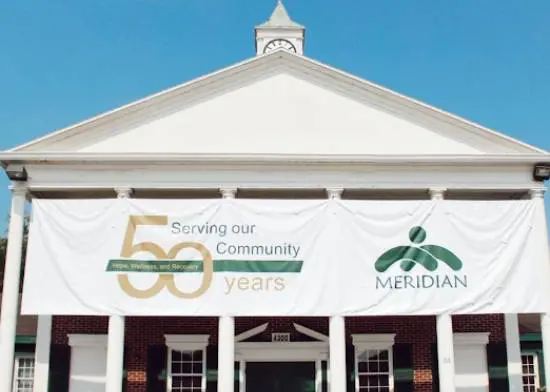
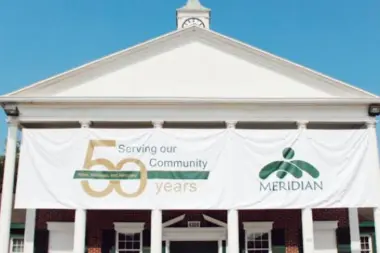
Accepted Insurance


Other Forms of Payment
Private insurance refers to any kind of healthcare coverage that isn't from the state or federal government. This includes individual and family plans offered by an employer or purchased from the Insurance Marketplace. Every plan will have different requirements and out of pocket costs so be sure to get the full details before you start treatment.
Self-pay involves paying for treatment out of your own pocket. You can use savings or credit, get a personal loan, or receive help from family and friends to fund your treatment. If you don't have insurance or your insurance plan doesn't cover a specific program, self-pay can help ensure you still get the care you need.
Sliding scale payments are based on a client's income and family size. The goal is to make treatment affordable to everyone. By taking these factors into account, addiction recovery care providers help ensure that your treatment does not become a financial burden to you or your family, eliminating one barrier to care.
Financial aid can take many forms. Centers may have grants or scholarships available to clients who meet eligibility requirements. Programs that receive SAMHSA grants may have financial aid available for those who need treatment as well. Grants and scholarships can help you pai for treatment without having to repay.
Medicare is a federal program that provides health insurance for those 65 and older. It also serves people under 65 with chronic and disabling health challenges. To use Medicare for addiction treatment you need to find a program that accepts Medicare and is in network with your plan. Out of pocket costs and preauthorization requirements vary, so always check with your provider.
Medicaid is a state based program that helps lower-income individuals and families pay for healthcare. Medicaid covers addiction treatment so those enrolled can use their coverage to pay for rehab. When a program accepts Medicaid the client often pays very little or nothing out of their own pocket.
Military members, veterans, and eligible dependents have access to specific insurance programs that help them get the care they need. TRICARE and VA insurance can help you access low cost or no cost addiction and mental health treatment. Programs that accept military insurance often have targeted treatment focused on the unique challenges military members, veterans, and their families face.
Addiction Treatments
Levels of Care
Outpatient services provide treatment and support for adults and children affected by trauma, behavioral issues, mental illnesses, addictions and co-occurring disorders within the same seamless system to support sustained recovery for those who have experienced severe or chronic illness. Meridian provides evidence-based treatments for depression, anxiety, bi-polar disorder, schizophrenia, PTSD and trauma-related behavioral problems. Services begin with an assessment to understand your unique concerns and establish a diagnosis that leads to a custom treatment plan targeting the gains you want to make and that includes outpatient and any other services of level of care you might need.
Clients typically choose inpatient rehab when they are in early recovery or are experiencing a crisis that puts them at an increased risk of relapse. They reside at the treatment center for the length of their program, which may range from two weeks to more than 18 months, depending on the program design. Intensive psychotherapy is often the primary treatment modality, but clients in inpatient care may also receive holistic treatment and recovery-focused life skills training.
Intensive outpatient programs (IOP) involve frequent and robust therapeutic sessions for clients requiring high-level care. Clients may engage in a combination of medication assisted treatment (MAT), addiction counseling, recovery skills training, and holistic therapies for a minimum of nine and a maximum of 20 hours per week. Intensive outpatient rehab is designed primarily for persons in early recovery, those exiting detox or inpatient care, and those at an elevated relapse risk.
If a person with a substance use disorder continually denies their problem or refuses to get treatment, a drug intervention in Florida may be necessary. Intervention services can help mediate the intervention by providing an addiction expert. This professional can de-escalate situations and facilitate a healthier discussion between the individual and their loved ones. Specialists can also help families handle issues they don't know how to navigate on their own.
Often referred to as "day treatment," a partial hospitalization program (PHP) offers an intensive treatment option that allows individuals to return home at night. PHP treatment typically requires a minimum of 20 hours a week for an average of 90 days. Participants attend daily therapeutic sessions, receive medication management, and have access to skilled medical professionals. While costs can vary, most insurance will fully or partially cover a partial hospitalization program.
24-hour clinical care in Florida is an essential part of treatment, particularly with medical detox. Withdrawal symptoms can be severe, and supervised detox provides around the clock access to medical professionals who can adminsiter proper medications and treatment to address these symptoms and step in should an emergency occur. This intensive clinical care will help curb the withdrawal effects, minimize substance dependence, and prepare you for the next step of treatment.
Meridian Behavioral Healthcare - SW Williston’s detox units in Gainesville and Lake City provide evaluations and medically-supervised alcohol and opioid detoxification for those who are likely to experience significant withdrawal from alcohol, heroin and pain pills like hydrocodone, oxycodone, morphine and codeine. The Meridian detox unit does not treat cocaine, marijuana or methamphetamine dependence.
Telehealth offers many benefits for Florida residents. It lets you see your healthcare provider from anywhere. This saves time because you don't have to travel to a doctor's office or take time off work to get there. It also provides more options, because you can choose health care specialists who are located far from you.
Treatments
The goal of treatment for alcoholism is abstinence. Those with poor social support, poor motivation, or psychiatric disorders tend to relapse within a few years of treatment. For these people, success is measured by longer periods of abstinence, reduced use of alcohol, better health, and improved social functioning. Recovery and Maintenance are usually based on 12 step programs and AA meetings.
Drug rehab in Florida provides quality treatment to help individuals overcome dependency related to a wide range of addictive substances. Programs address both the physical and mental aspects of addiction in order to help you make a full recovery.
A combined mental health and substance abuse rehab has the staff and resources available to handle individuals with both mental health and substance abuse issues. It can be challenging to determine where a specific symptom stems from (a mental health issue or an issue related to substance abuse), so mental health and substance abuse professionals are helpful in detangling symptoms and keeping treatment on track.
Opioid rehabs specialize in supporting those recovering from opioid addiction. They treat those suffering from addiction to illegal opioids like heroin, as well as prescription drugs like oxycodone. These centers typically combine both physical as well as mental and emotional support to help stop addiction. Physical support often includes medical detox and subsequent medical support (including medication), and mental support includes in-depth therapy to address the underlying causes of addiction.
In Florida, substance abuse treatment focuses on treating mental health and substance use disorders concurrently to improve recovery outcomes and overall health. Levels of care include medical detox, outpatient, residential treatment, and intensive outpatient programs. Clinicians utilize evidence-based therapies such as dialectical behavioral therapy (DBT) or medication-assisted treatment, group therapy, and skills training activities. This comprehensive approach to treatment helps to ensure sustained recovery.
In Florida, dual-diagnosis addiction treatment treats mental health and substance use disorders concurrently to enhance successful recovery outcomes and improve overall health. Specialized rehab programs include medical detox, outpatient, residential treatment, and intensive outpatient programs. Using evidence-based therapies, like dialectical behavioral therapy or medication-assisted treatment, clinicians successfully treat dual-diagnosis addiction and mental health conditions. Other activities include group therapy and skills training, to equip you with the skills required to achieve and sustain your recovery.
When you have a mental health disorder and an addiction, it's known as a co-occurring disorder. Since treating both conditions at the same time is critical, you'll want to seek out a dual diagnosis treatment center. These specialized rehabs offer the care needed to overcome both disorders, which drastically increases your chances of success in long-term recovery. Types of therapies provided tend to include individual and group counseling, relapse prevention education, coping skills training, and cognitive behavioral therapy (CBT).
Programs
Adult rehab programs include therapies tailored to each client's specific needs, goals, and recovery progress. They are tailored to the specific challenges adult clients may face, including family and work pressures and commitments. From inpatient and residential treatment to various levels of outpatient services, there are many options available. Some facilities also help adults work through co-occurring conditions, like anxiety, that can accompany addiction.
Young adulthood can be an exciting, yet difficult, time of transition. Individuals in their late teens to mid-20s face unique stressors related to school, jobs, families, and social circles, which can lead to a rise in substance use. Rehab centers with dedicated young adult programs will include activities and amenities that cater to this age group, with an emphasis on specialized counseling, peer socialization, and ongoing aftercare.
Rehabs for women provide a safe, nurturing space for female clients to heal. These treatment programs consider the specific obstacles that women can face during recovery and place a special emphasis on mental, social, physical, and reproductive health. They explore how each woman's experience has shaped the trajectory of their substance use, addressing issues such as sexual abuse and past trauma.
Clinical Services
Therapists who apply cognitive behavioral therapy in Florida believe patient thoughts and behaviors are closely linked. They use this treatment method to help clients change their thought patterns so they can also change behaviors and break free from substance abuse.
Much of Meridian Behavioral Healthcare - SW Williston's clinical work takes place using Group Therapy. Group Therapy has been shown to be very effective in providing improvement in symptoms associated with a range of mental illnesses and substance use disorders and provides the support needed to make sustainable life changes. Groups can be based on experiences (like trauma) common to group members or a particular disorder (anxiety or depression). Those who need more intensive supports to manage their illness can be referred to more intensive and specialized Intensive Outpatient Day Treatment, which meets several hours each day.
Adult Outpatient Counseling provides services to adults with behavioral or emotional problems, or a longer term mental illness, which is affecting the ability to function effectively. Counseling services are provided in a focused, time-effective manner. In general, therapeutic services target the reduction of symptoms and enhancement or development of age appropriate behavioral, interpersonal or other skills needed for effective functioning in home, social and work environments. The program includes on-site and in-clinic outpatient service components. Each component represents a different level of clinical intensity. Thus, some individuals are seen in their family or home environment, and some are seen in the clinic. Often, services such as intervention programs, psychiatric consultation and linking to an array of community resources are sought in order to meet treatment goals.
As a short term therapeutic method, motivational interviewing in Florida requires only a couple of sessions. During these sessions, you'll have the opportunity to talk about your circumstances and any discrepancies between your current situation and future goals. You'll then decide for yourself what changes you want to make.
Trauma therapy addresses traumatic incidents from a client's past that are likely affecting their present-day experience. Trauma is often one of the primary triggers and potential causes of addiction, and can stem from child sexual abuse, domestic violence, having a parent with a mental illness, losing one or both parents at a young age, teenage or adult sexual assault, or any number of other factors. The purpose of trauma therapy is to allow a patient to process trauma and move through and past it, with the help of trained and compassionate mental health professionals.
During couples therapy in Florida, your therapist will take steps to get to know you, help you identify feelings, explore the past, develop solutions, and help you learn skills to manage relationship challenges. This process will allow you to work through conflict and strengthen your relationship.
Meridian’s Center for Building Healthy Families offers evaluation and evidence based treatments for childhood depression, anxiety, bi-polar disorder, schizophrenia, PTSD, and trauma-related behavioral problems in their clinic, at home or at school. The Center for Building Healthy Families encompasses therapeutic services delivered to children and their families. The Center provides multi-disciplinary substance abuse and mental health assessments as well as treatments to effectively provide behavioral healthcare.
Life skills are the core skills you need for daily success. They can include self care, stress management, daily routines, and emotion control. Rehab treatment includes the development of these skills so you have the tools you need for long term recovery.
Substance abuse creates biochemical imbalances in your body and brain. By implementing dietary changes, you can restore that balance. This is the goal of nutrition therapy in Florida. You'll gain an understanding of what nutrients your body needs and learn best self care practices.
Recreational therapy helps you recover from addiction by giving you structured activities that promote your physical health and mental well being. These activities could range from sports and fitness to creative arts and provide a constructive outlet for your emotions and stress.
Dialectical behavior therapy in Florida consists of individual therapy and group instruction. This structured program is a form of psychotherapy that incorporates the development of skills for managing emotions and relationships.
Amenities
-
Residential Setting
-
Private Setting
Staff & Accreditations
Staff
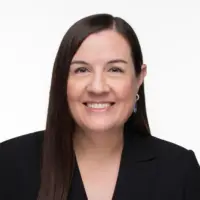
Lauren Cohn
President & CEO
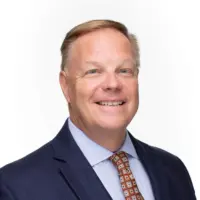
Donald Savoie
Senior Advisor to the President
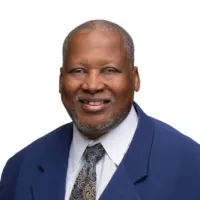
Richard Anderson
Senior VP, Chief Clinical Officer
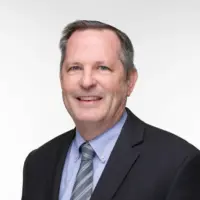
Alan Paulin
Senior VP & Clinical & Community Services
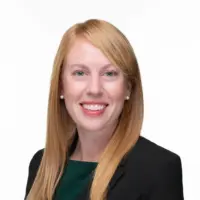
Ashley Tozier
COO

Annmarie Attaway
SVP & CFO
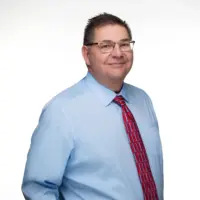
Jeff Feller
Chairperson, BOD
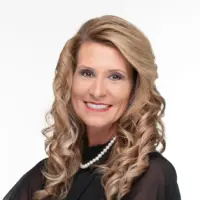
Stephanie McClendon
Secretary, BOD
Accreditations

The Commission on Accreditation of Rehabilitation Facilities (CARF) is a non-profit organization that specifically accredits rehab organizations. Founded in 1966, CARF's, mission is to help service providers like rehab facilities maintain high standards of care.
CARF Accreditation: Yes

The Joint Commission, formerly known as JCAHO, is a nonprofit organization that accredits rehab organizations and programs. Founded in 1951, the Joint Commision's mission is to improve the quality of patient care and demonstrating the quality of patient care.
Joint Commission Accreditation: Yes

The Substance Abuse and Mental Health Services Administration (SAMHSA) is a branch of the U.S. Department of Health and Human Services. Established in 1992 by congress, SAMHSA's mission is to reduce the impact of substance abuse and mental illness on American's communities.
SAMHSA Listed: Yes

State Licenses are permits issued by government agencies that allow rehab organizations to conduct business legally within a certain geographical area. Typically, the kind of program a rehab facility offers, along with its physical location, determines which licenses are required to operate legally.
State License: Florida
Contact Information
1541 SW Williston
Gainesville, FL 32608






